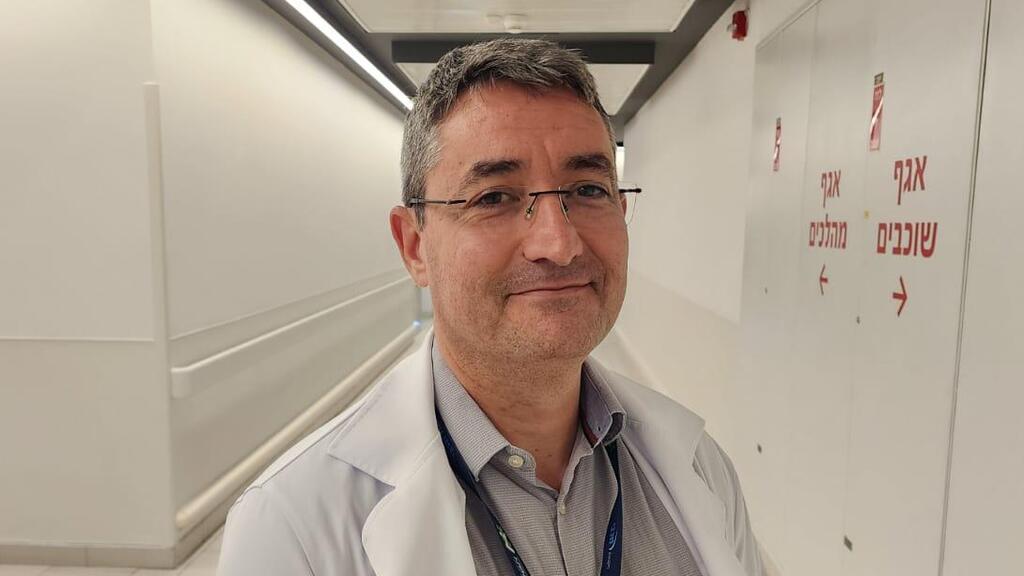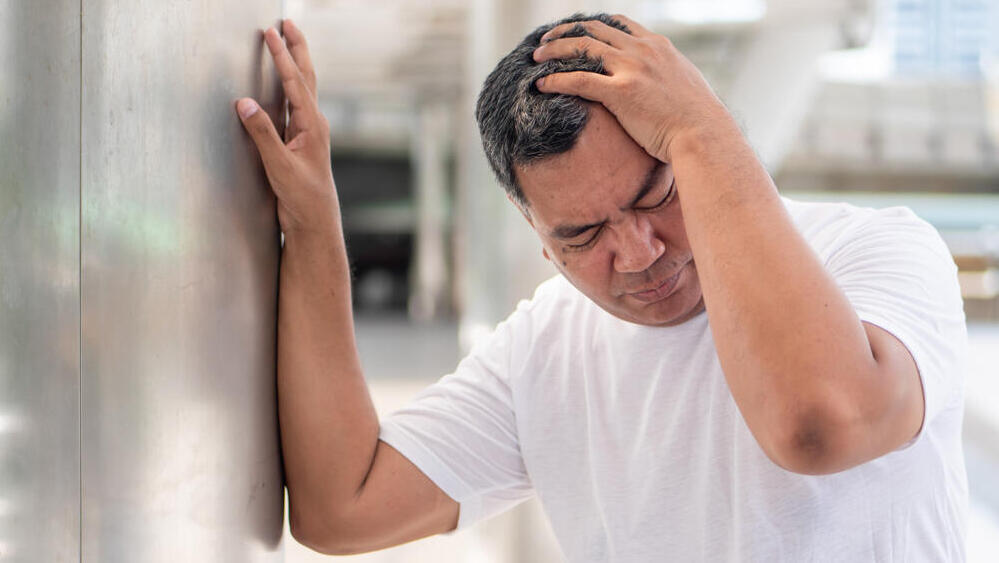Interrupted sleep, blaring sirens and prolonged stress have become routine for Israelis during the war with Iran, which concluded with a fragile ceasefire Tuesday. But beyond the emotional toll and daily disruption, doctors warn that chronic sleep loss in times of national crisis could pose a serious health threat: an increased risk of stroke.
“When you don’t sleep, your brain pays the price,” said Dr. Salo Haratz, head of the neurology department at Assuta Medical Center’s Ashdod hospital. “We’re seeing a clear pattern—broken nights, constant anxiety and high alertness—all of which create the perfect storm for a stroke.”
More than fatigue: A serious risk to brain health
According to Haratz, even a few days of severe sleep deprivation can trigger dangerous physiological responses:
• High blood pressure – disrupted sleep impairs the body's natural regulation mechanisms.
• Vascular inflammation – stress increases inflammatory compounds in the blood.
• Elevated clotting risk – raising the chance of a blocked artery in the brain.
Additionally, prolonged lack of rest puts the body in a state of hyperarousal—ongoing physiological stress that damages blood vessels and brain function.
“The brain needs sleep to recover,” he explained. “Throughout the day, toxins build up in the body and sleep allows the brain to flush them out. When sleep is too short or fragmented, these systems break down. This damage adds up and can lead to stroke or heart attack—even after just a few nights without proper rest. It doesn’t take months or years.”
Lab mice didn’t survive it
Haratz pointed to lab studies on mice and rats that demonstrated extreme vascular consequences from sleep deprivation. “They showed not only strokes but a full spectrum of vascular events,” he said. “Chronic sleep loss also damages the endothelium—the inner lining of blood vessels—which increases the risk of clotting. Over time, this raises the risk of dementia as well.”
The same trends are seen in humans. People who work night shifts, for example, are significantly more likely to develop neurological conditions, high blood pressure and strokes.
“Even after a day or two without normal sleep, we already see spikes in blood pressure, inflammation markers and physiological stress,” said Haratz. “Add to that the mental strain of sirens and fear and the risk multiplies.”
Haratz emphasized four key symptoms that require immediate medical attention:
- Sudden paralysis or weakness in an arm or leg
- Difficulty speaking or forming words
- Facial drooping, such as a lopsided smile
- An intense, sudden headache (though not all headaches indicate stroke)
Any of these, especially if they appear suddenly, warrant an urgent trip to the ER. According to Haratz, age significantly increases stroke risk—but so do common chronic conditions:
- High blood pressure
- Diabetes
- Elevated blood lipid levels
- Heart rhythm disorders, including atrial fibrillation
- A family history of strokes
Sleep — a necessity
“There are things people can do,” Haratz said. “First, recognize that sleep isn’t a luxury—it’s a basic medical need. If you can’t sleep for eight hours straight, try breaking it up. Four short naps of two hours each are better than no sleep at all.”
He encouraged people to take advantage of support systems like phone or online therapy, counseling, breathing exercises, meditation or yoga. “Anything that lowers stress levels can help.”
Get the Ynetnews app on your smartphone: Google Play: https://bit.ly/4eJ37pE | Apple App Store: https://bit.ly/3ZL7iNv
He also warned against neglecting medication routines. “In times like these, people forget to take their pills—and that’s especially dangerous when it comes to blood pressure, diabetes or chronic medications,” he said. “And don’t wait for symptoms. You can and should monitor blood pressure at home.”
Haratz and other neurologists recommend the following:
- Raise public awareness – understand that sleep is essential for health.
- Promote stress-reduction methods – such as mindfulness, meditation and light exercise.
- Improve sleep environments – even inside bomb shelters: reduce noise, keep air flowing and darken the room.
- Ensure access to safe spaces – such as shelters where people can rest calmly.
- Provide accessible mental health support – trauma and anxiety treatment can help restore sleep patterns.
- Monitor your health at home – check blood pressure, take medications as prescribed and stay alert to warning signs.
“Sleep is the body’s most effective repair tool,” Haratz concluded. “Without it, we’re more vulnerable than we realize.”






